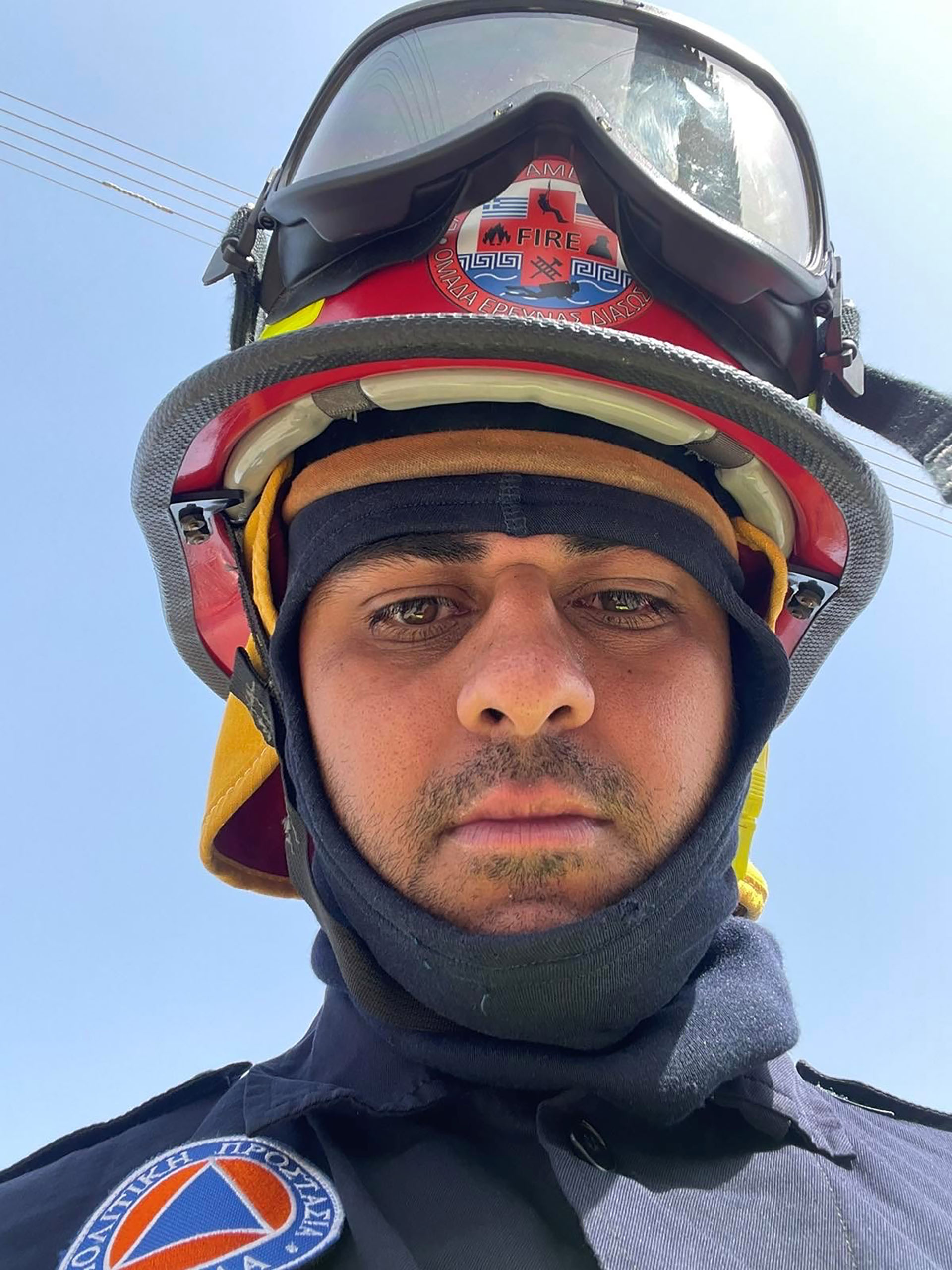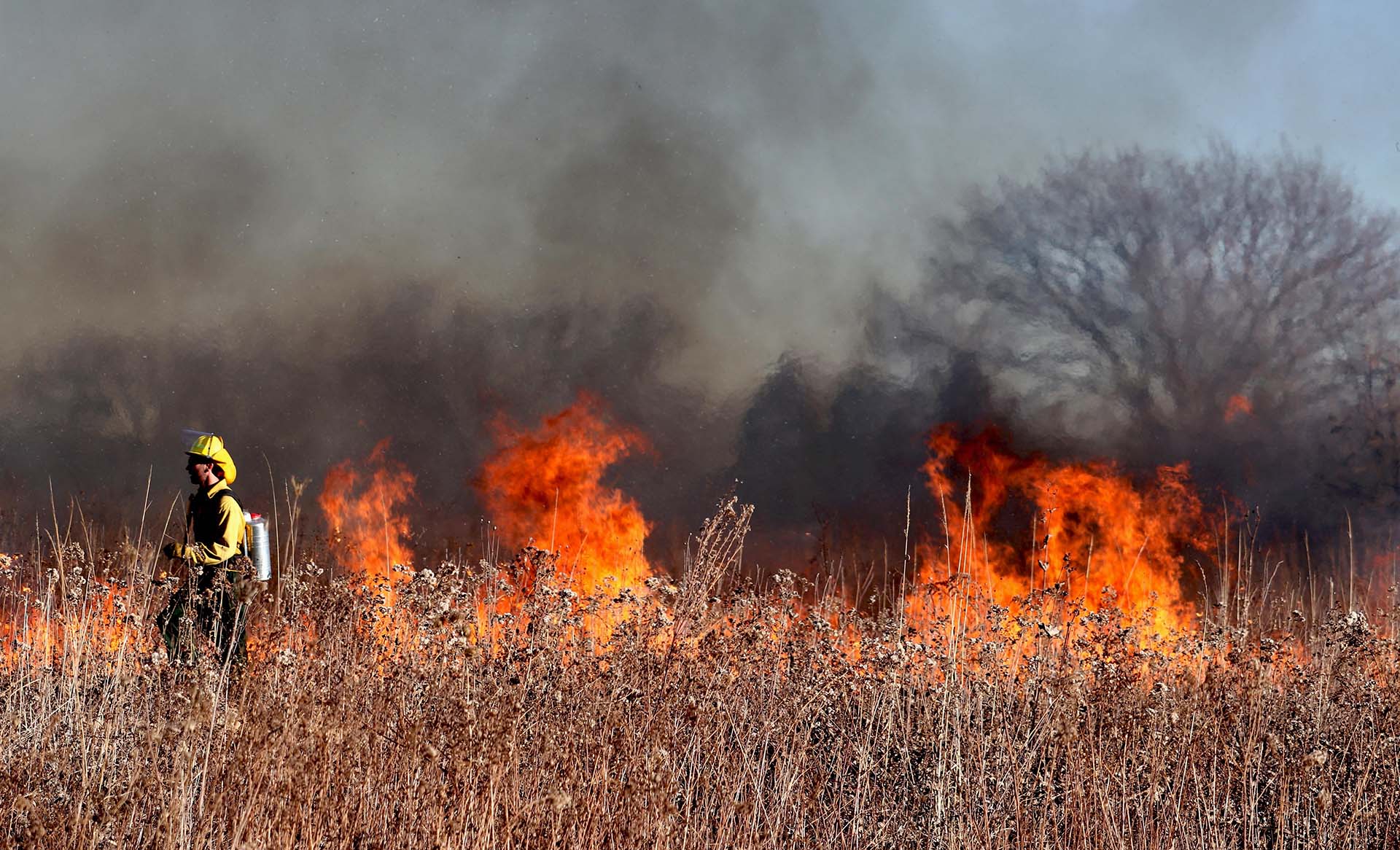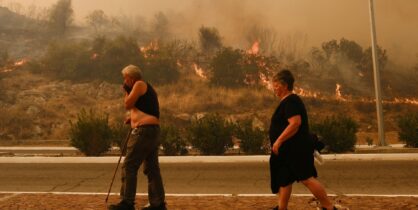Fighting Wildfires in Greek Lands
Interview with Vangelis Isaris, volunteer fighting wildfires in Western Greece.
Firefighting wildfires in Greece and in this case western Greece presents unique challenges and demands, especially for those serving as volunteers. With a year of experience in a volunteer firefighters team, Vangelis Isaris, in an interview with Areti Vlachodimou for REVOLVE, explains he witnessed firsthand the dedication required to combat the frequent and often devastating fires that plague the country.
The working conditions for firefighters, particularly volunteers, can be strenuous, with many bearing personal costs for essential gear and equipment. They face long hours and physically taxing situations, often responding to multiple large fires in a single day, which can lead to exhaustion and heightened risk.
Despite government efforts to bolster firefighting resources, including the recent hiring of seasonal wildland firefighters following severe wildfires, the overall response remains hampered by a shortage of personnel and inadequate funding. The emotional and physical toll of the job is significant, as they navigate dangerous environments such as wildfire smoke, and large fires, often with limited support. As climate change exacerbates fire danger that can result into air pollution, the need for improved training, resources, and preventive measures becomes increasingly critical to protect both volunteers and the communities they serve.
Greece has experienced extreme heat, with mean temperature anomalies reaching +2-3°C. For a seven-day period, the maximum temperatures in Balkan and Mediterranean countries reached over 42-44°C. This heat is creating dry conditions that could threaten and burn forests.
How long have you been working in a team of wildland firefighters and what are their working conditions in Greece?
I am a volunteer firefighter, and I have been on the team for a year. Before that, I helped with fire suspension, again as a volunteer, but I had a different role. I offered them water and helped people when there were large fires.
There’s mostly a shortage of people in that department. So, there was also an issue with seasonal firefighters. The state helps, but whatever we [volunteers] have, we take it out of our own pockets. That includes costs for equipment and rescue.
What is it like for a firefighter to live and work in general, since they are seasonal?
It’s certainly a small salary compared to what they do. For example, a firefighter that was called to fight a fire in Nafpaktos that started at 12 o’clock and finished at 17:00, may then be called to leave Nafpaktos and go to a different fire in Athens [about 2.5 hours away by car]. There are no specific hours, and as you can understand, and there are several fire locations, these people get tired.

Now in Nafpaktos, the volunteers had come from Grevena, Kastoria, and Ioannina [cities in Northwestern Greece 2 to 3.5 hours apart]. The ones from Ioannina came the day after the fire broke out, and we were there either for rearmament of the fire or to clean up the area so that a new fire wouldn’t start as the temperatures were so high.
We have some Canadair [aircrafts] that are very, very old. You’ve seen, let’s say, there are accidents and now in Nafpaktos, if you noticed, there was an accident where [the edge of] a Canadair’s wing hit a tree. A big problem. I mean, I was meanwhile a little bit below that Canadair.
Fortunately, I was behind it. It had passed me when that happened. I was right underneath it. On the hill. It was going to crash into houses. There was a gas station a little further on. So, as I studied the course a little bit, it would have hit both houses and a gas station. One incident that has happened again here, near Nafpaktos, was when there was a fire in [the town of] Thermo, which was extinguished by airborne method. The aerial methods, most of the time, have no contact with what’s going on down below. However, there may be a firefighter or a volunteer operating near the fire while the aerial means come and drop water. This waterfalls at 300 mph, and once it caused a firefighter to have a heart attack. He was unfortunately left disabled.
What’s the most difficult fire danger you’ve had to deal with so far?
There was a fire in Tolofona in Fokida [Central Greece], which started in the late afternoon, and it was quite difficult because there was a strong wind. Also, there were no firefighting aircrafts because at night they can’t get up in the air.
Mainly in Greece, most of the fires, in my opinion, are intentional.
So, the fire was burning very fast, and we had to be very careful. I went in around 11 o’clock at night, and I left at 6 o’clock in the morning, and the fire was still there. There were people who had lost their homes and animals; it was very dangerous over there.
Mainly in Greece, most of the fires, in my opinion, are intentional. Look at the example of Evia. Of course, many are also by negligence, [people] do not clean their fields [or cut the grass in their summer houses]. It is from a lot of rubbish that is thrown away, or from flammable glass that can set a forest on fire.

In my opinion, there should have been better forest roads. A month or two before each summer, the forestry department should do some cleaning of natural debris, there also should have been firebreaks. These are the basic things that we need to take care of in Greece in general.
Greek Prime Minister Kyriakos Mitsotakis said that this year more firefighters have been hired and training increased following the forest fire in Rhodes last summer. Have you heard anything about this?
Seasonal hires for wildfire were made, but I think they were made too late. I think they must have been hired around May or June, if I’m not mistaken. Now, these hires are seasonal, meaning they only work in the summer wildfire.
I wish that the seasonal firefighters become permanent.
In my opinion, the fire brigade, especially in Greece that copes with multiple disasters, is too few in number. For example, the floods that happened in Thessaly needed to have more people. I wish that the seasonal firefighters become permanent.
How would you describe the attitude of the Greek government towards fire protection?
There is negligence and there’s an emergency response needed. The government’s country gives more money for other, perhaps unnecessary, things, such as [military] aircraft and police cars. There is crime, I don’t disagree, but there is a lot of neglect in terms of the fire department and the fire brigade – from vehicles to people.
From your experience, what do you think needs to change in Greece for the prevention and management of fires?
At the very beginning of each month, every region’s country should have clean roads so that fire brigade vehicles and volunteers can operate. There should be open trails, for people, but also ones designed only for the fire department. There should be a safety inspection every year of the lots, fields, and debris, and to apply certain fines when necessary.
For instance, it is currently July and there are still uncleared fields from the winter. The deadline for clearing them has already passed.
